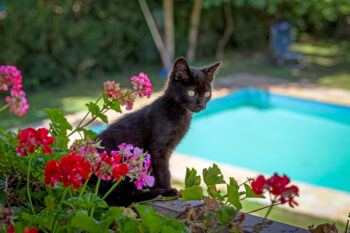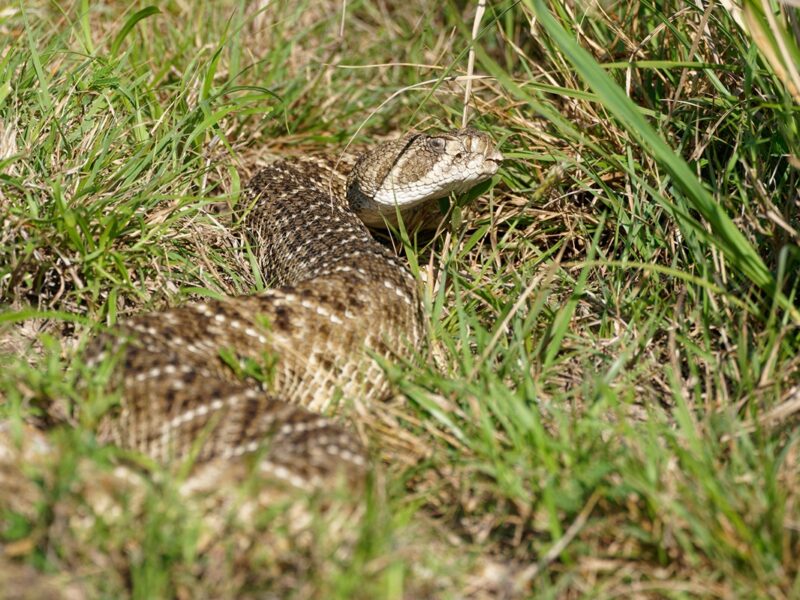The Importance Of Vaccinations For Cats

Kittens and cats, whether they live indoors or outdoors, can be exposed to diseases caused by viruses or bacteria. Vaccinations help protect our feline friends by preventing the spread of these diseases and boosting their body’s defense against potentially fatal illnesses.
Because of this, Dr. Lori Teller, a clinical associate professor at the Texas A&M School of Veterinary Medicine & Biomedical Sciences, encourages owners to vaccinate their kittens and cats against common, yet fatal, diseases sooner rather than later.
“Kittens should begin pediatric visits to the veterinarian when they are 6-8 weeks old, where vaccinations will initially be given as a series until the animal is 16-20 weeks of age,” Teller said. “On the other hand, cats adopted as adults should visit a veterinarian and receive their vaccinations as soon as possible.”
Some common diseases that cats should be protected against include panleukopenia, a viral disease caused by feline parvovirus, and rhinotracheitis, an infection that leads to upper respiratory infections.
“If a cat gets panleukopenia, all of their white blood cells are wiped out, leaving it unable to fight off any other infections; this disease frequently results in death,” Teller said. “Additionally, once a cat has rhinotracheitis, cats will generally become carriers for life and may experience flare-ups of respiratory problems when they become stressed or when their immune system is suppressed.”
Teller explained that there is a combination vaccine that can protect cats against panleukopenia, rhinotracheitis, and calicivirus, a virus that causes upper respiratory infections and ulcers — or sores that develop in the cat’s mouth and on the tongue.
Additionally, cats who venture outside should be vaccinated against feline leukemia, a highly contagious virus that spreads easily between cats.
“Feline leukemia is most commonly spread through saliva and nasal secretions, so cats that share food and water bowls, groom each other, or bite each other in a fight can spread the virus,” Teller explained. “This virus can lead to a suppressed immune system and leaves a cat susceptible to other infections, as well as cancer, all of which can potentially be fatal.”
There also are vaccines that cats require no matter their lifestyle, such as rabies. Teller pointed out that rabies, which is almost always fatal, can be transmitted to cats by wildlife, including bats, coyotes, raccoons and skunks.
In addition to vaccinations, Teller suggests that owners protect their cats from diseases spread by mosquitoes, fleas and ticks.
“Keeping pets on year-round preventives will kill fleas and ticks and prevent the development of heartworm disease and intestinal parasites, which can be infectious to humans,” Teller said.
Finally, a visit to the veterinarian will help determine if your kitten or cat requires any additional vaccinations.
“Your cat’s age, environment and current health status can help your veterinarian best determine the appropriate vaccinations for your pet to receive,” Teller said. “Vaccinations protect our pets from a variety of diseases that can cause significant illness or death and are always less expensive than the cost to treat illnesses.”
Vaccinations are vital for protecting pets against illnesses and by vaccinating kittens and cats against dangerous diseases, owners can ensure their feline friend lives a healthy and happy life.
Pet Talk is a service of the School of Veterinary Medicine & Biomedical Sciences, Texas A&M University. Stories can be viewed on the web at vetmed.tamu.edu/news/pet-talk. Suggestions for future topics may be directed to vmbs-editor@tamu.edu.
Media contact: Jennifer Gauntt, lshenton@tamu.edu




